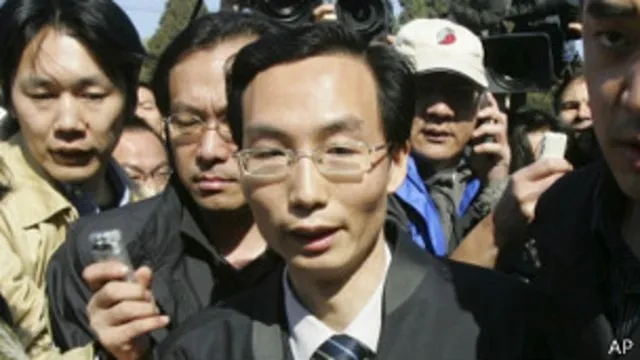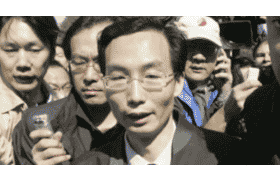
Li Fangping started practicing law in China in the mid-1990s, first in Jiangxi and then in Beijing. Over the years since the onset of the rights defense movement in the early 2000s, he has been one of the leading human rights lawyers and has defensed clients in nearly all types of human rights and public interest cases, including political prisoners, activists, rights defenders, victims of food contamination, victims of workplace discrimination, Uyghur scholar Ilham Tohti, and Tibetan Buddha Buramna Rimpoche. I was in a messaging group with Mr. Li a few years ago and remembered to this day what he once said there: “The police have visited my parents in Jiangxi more times than I have.” He and his family recently arrived in the U.S. via Hong Kong. — Yaxue Cao
Ladies and gentlemen, guests and viewers, it is an honor to take part in this year’s Human Rights Lawyers Day. As a Chinese lawyer of nearly 30 years, I am pleased to share with you the evolution of the legal scene in contemporary China, and discuss the future of China’s human rights lawyers.
By nature, the bar is a system designed to respect rule of law, limit government power, and protect civil rights. Following the establishment of the People’s Republic of China in 1949, the new regime was antagonistically disposed to lawyers who continued to practice as they had during the republican era. In December 1950, the Ministry of Justice announced the termination of the old lawyer system. The 1954 Constitution stipulated the right of defendants to legal defense, setting up the new regime’s own lawyer system.
China Change » Chinese Lawyers’ ‘Original Sin’ — Speech by Lawyer Li Fangping on the 6th China Human Rights Lawyers Day https://t.co/Kyf5H9kywP
— jiangty02 (@jiangty02) July 11, 2022
However, less than three years later, the “Anti-Rightist Movement” of 1957 once again threatened China’s lawyers with full-scale crackdown.
According to a dataset published by the All China Lawyers Association, in 1957, at least 30 percent of lawyers were classified as “rightists,” perhaps the highest percentage of any profession.
The reasons for so many lawyers being criticized as rightists can be broadly summarized as follows:
First, they were accused of attacking the judicial system and judicial organs of the “people’s regime”; second, their ideas that lawyers are supra-class and independent was a refusal to recognize that lawyers are part of the apparatus of the “people’s dictatorship”; third, they insisted on presumption of innocence; and fourth, they confronted and opposed the people’s procuratorate.
So it’s clear that, from the beginning of the PRC’s establishment, the authorities regarded lawyers with hostility, whether lawyers from the republican era or those who began practicing under the new regime.
[…]




